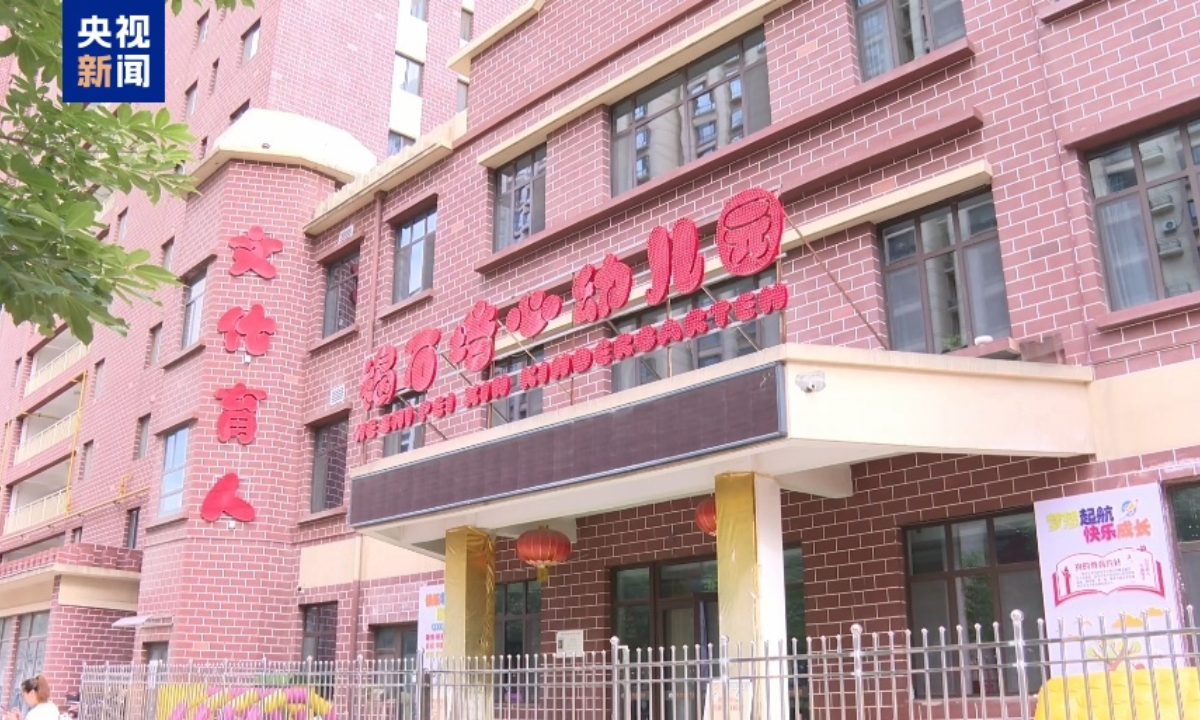
Authorities in Gansu province have set up a task force to conduct an elevated investigation into a case of abnormal blood lead levels among more than 200 children enrolled at a privately run kindergarten in the city of Tianshui.
The task force, which was formed on Saturday, is led by key officials from the provincial committee of the Party and the provincial government. It comprises officials from the provincial discipline inspection commission, the departments of education, public security, ecology and environment, the health commission and the market regulation administration.
Experts from the Ministry of Ecology and Environment and the National Health Commission have also been invited to participate in the probe. The food safety office of the State Council, China's Cabinet, has sent a working group to guide and supervise the investigation. The results of the probe will be made public.
READ MORE: 8 criminally detained in Gansu for producing toxic food in kindergartens
The incident came to light on July 1, when the market supervision administration and the public security bureau of Tianshui's Maiji district received a report about abnormal levels of lead in the blood of some children studying at Peixin Kindergarten.
All 251 children enrolled at the kindergarten were examined by doctors last week, and 233 of them were found to have abnormal levels of lead exposure. As many as 201 children were referred to hospitals for treatment.
A joint investigation team comprising officials from seven relevant departments was formed and 223 samples, including raw materials, cooked food and water, from Peixin and three preschools were tested.
Two samples from Peixin — a tricolor red date sponge cake served for breakfast and corn roll with sausage served for dinner — failed to meet food safety standards, the joint investigation team found.
The breakfast and dinner samples had lead content of 1,052 milligrams per kilogram and 1,340 mg per kg, respectively, both far exceeding the national food safety standard limit of 0.5 mg per kg for contaminants, according to a report released by the team last week.
Eight people, including Peixin's principal and investor, were detained for allowing the kitchen staff to use unauthorized food additives. Two others were released on bail pending trial. Local authorities said that relevant departments responsible for oversight will face strict accountability.
Sun Chengye, chief expert of poison control at the Chinese Center for Disease Control and Prevention, said the National Health Commission sent experts to Tianshui on July 4 to guide on-site handling of the incident. Over 10 experts from the provinces of Gansu and Shaanxi worked together to develop a treatment plan for the children, he added.
ALSO READ: China imposes tougher punishments for food safety violators
The incident triggered widespread concerns, given the detrimental effects of long-term lead exposure. As a naturally harmful heavy metal, lead is identified by the World Health Organization as one of the top 10 most concerning toxic substances for public health.
According to an article by Zhongshan Hospital Affiliated with Fudan University, excessive lead ingestion can result in lead poisoning, which can affect the nervous, cardiovascular and reproductive systems, triggering various health problems such as anemia, hypertension, kidney damage and immune toxicity.
The hospital noted that while lead exposure presents risks to individuals of all age groups, children are particularly vulnerable.
Contact the writers at dengrui@chinadaily.com.cn


